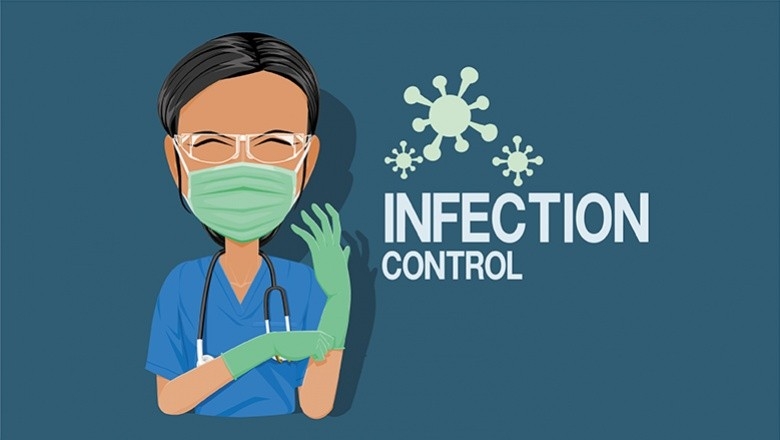Dental Infection Control: Best Practices for a Safe Dental Environment

Dental infection control is a crucial aspect of oral healthcare that ensures both patients and dental professionals are protected from the transmission of infectious diseases. With the rise in awareness about hygiene and safety standards in medical practices, maintaining strict dental infection control protocols has never been more important.
In this article, we’ll explore what dental infection control entails, why it’s essential, and the top procedures every dental clinic should follow to maintain a safe and sterile environment.
What is Dental Infection Control?
Dental infection control refers to a series of guidelines, procedures, and protocols aimed at preventing the spread of infections in dental settings. These controls are implemented to protect against bacteria, viruses, and other microorganisms that can be transmitted through blood, saliva, instruments, or surfaces.
Dental procedures often involve exposure to bodily fluids, making the risk of cross-contamination high without proper infection control measures.
Why is Dental Infection Control Important?
Ensuring infection control in dental practices is vital for several reasons:
-
Patient Safety: Reduces the risk of infections from bloodborne pathogens like Hepatitis B, Hepatitis C, and HIV.
-
Protecting Dental Staff: Keeps dental professionals safe from potential exposure to infectious agents.
-
Legal Compliance: Adhering to guidelines set by regulatory authorities such as OSHA, CDC, and ADA helps avoid legal consequences.
-
Clinic Reputation: Clinics that maintain high hygiene standards earn greater trust and credibility among patients.
Key Components of Dental Infection Control
Implementing a comprehensive dental infection control program involves multiple layers. Below are the key components:
1. Personal Protective Equipment (PPE)
Proper use of PPE such as gloves, masks, eyewear, and gowns is critical. PPE acts as a barrier to protect dental professionals from exposure to contaminants during procedures.
2. Hand Hygiene
Regular hand washing or sanitizing before and after each patient interaction is one of the most effective ways to reduce the spread of microorganisms.
3. Sterilization of Dental Instruments
All reusable instruments must be cleaned, disinfected, and sterilized using autoclaves or other approved methods. Sterilization ensures that all harmful pathogens are eliminated before reuse.
4. Surface Disinfection
High-touch surfaces such as dental chairs, lights, and countertops should be cleaned and disinfected after each patient visit using EPA-approved disinfectants.
5. Waste Disposal
Proper segregation and disposal of medical waste, including sharps, gauze, and contaminated items, is essential to prevent accidental exposure and environmental contamination.
6. Aseptic Techniques
Dental staff should use aseptic techniques during surgical and non-surgical procedures to minimize the introduction of pathogens.
7. Waterline Maintenance
Dental waterlines must be regularly flushed and treated to prevent the buildup of biofilms that can harbor dangerous bacteria.
Training and Compliance
Ongoing training is key to maintaining effective dental infection control. Staff should be regularly trained on updated protocols and safety standards. Clinics should also perform internal audits to ensure compliance and correct any lapses immediately.
Infection Control Guidelines and Authorities
The following organizations provide up-to-date guidelines for dental infection control:
-
Centers for Disease Control and Prevention (CDC)
-
Occupational Safety and Health Administration (OSHA)
-
American Dental Association (ADA)
-
World Health Organization (WHO)
Following their recommendations ensures that dental clinics remain compliant and maintain the highest safety standards.
Final Thoughts
In today’s healthcare environment, dental infection control is not optional—it’s essential. Whether you run a large dental practice or a small private clinic, adhering to infection control protocols is vital for the well-being of your patients and staff. Investing in proper training, equipment, and processes ensures your clinic maintains the trust and safety that modern patients expect.
Frequently Asked Questions (FAQ)
Q1: How often should dental instruments be sterilized?
All reusable instruments should be sterilized after every use to prevent cross-contamination.
Q2: What is the role of PPE in infection control?
PPE provides a physical barrier that protects both patients and dental professionals from infectious agents.
Q3: Are there infection control courses for dental professionals?
Yes, many institutions offer certified courses in infection control, and regular training is often mandated by regulatory bodies.
Q4: How do I know if my dental clinic follows proper infection control?
You can ask your dentist about their protocols or observe whether the clinic follows visible hygiene practices like PPE use and instrument sterilization.
- Art
- Causes
- Crafts
- Dance
- Drinks
- Film
- Fitness
- Food
- Games
- Gardening
- Health
- Home
- Literature
- Music
- Networking
- Other
- Party
- Religion
- Shopping
- Sports
- Theater
- Wellness


